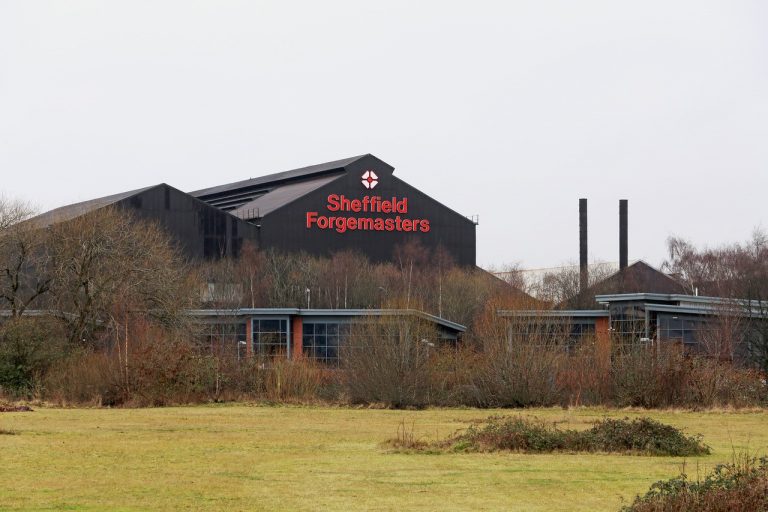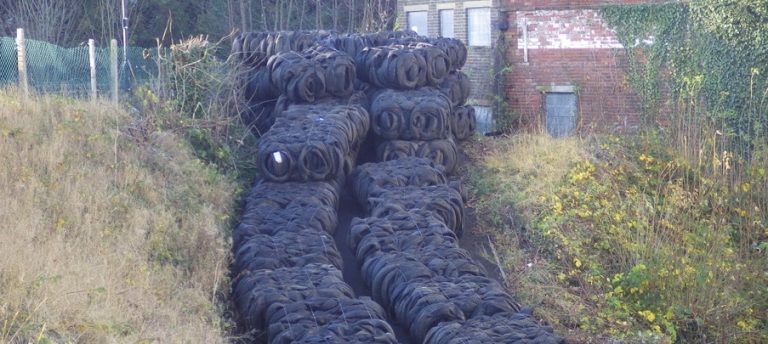British Steel sections used in major airport development
Work completes on Leeds high school extension
Leeds United’s Elland Road ground named as an Asset of Community Value
49ers Enterprises takes ownership of Leeds United
Yorkshire technology consultancy partner appoints new head of implementation
Drax commits £1.5m to help schools become more energy efficient
The Drax Foundation has committed £1.5 million this year to help schools install energy-efficient LED lights and solar panels, and deliver energy saving monitoring and education.
The firm, which owns Drax Power Station near Selby, established the Drax Foundation earlier this year to provide grant funding to non-profit organisations in the regions where it operates. The installation of energy-efficient LED lighting initiative is currently being piloted at the following five schools local to Drax’s operations in England:- Barwic Parade Community Primary School in Selby
- Kirk Sandall Junior School in Doncaster
- Selby Abbey Primary School
- Triangle Primary School in Sowerby Bridge
- Great Clacton Junior School in Clacton-on-Sea
Apex Group chosen to provide asset management services for Sheffield Forgemasters
Global asset management specialists Apex Group has been selected by Sheffield Forgemasters to provide long-term support for its major recapitalisation programme.
Sheffield Forgemasters is set to replace significant amounts of plant and equipment to deliver on its re-capitalisation plan, which will see whole new machining facilities created for defence-critical manufacture.
Apex will provide used equipment management services to generate the maximum business benefits for the heavy engineering specialist through the strategic and sympathetic disposal of its surplus industrial assets.
Steve Marshall, manufacturing transformation director at Sheffield Forgemasters, said: “As we progress with our recapitalisation programme, we have a requirement to dispose of numerous assets which will be replaced with state-of-the-art machining facilities.
“The appointment of a dedicated asset management group ensures that these machines are disposed of efficiently, securing maximum return on those assets and ensuring compliance with environmental best-practice.”
Five large machines are scheduled for disposal by the end of 2023, including large horizontal boring machines and lathes, with a further three ultra-large machines scheduled to go by the end of 2026. 2027 – 2028 will see seven more ultra-large machines decommissioned.
Steve added: “These assets are some of the largest machines of their kind in Europe, so decommissioning them is a key logistical project. Consideration of the circular economy through this disposal process will be a priority, ensuring that precious resources are re-utilised where possible.”
Apex Group aims to bridge the gap between buyer and seller, using a trading platform, a global buyer database, and targeted marketing and sales strategies in the disposal of Sheffield Forgemasters’ mature assets.
Apex Group’s Managing Director, Stephen Dugard, said: “Apex is proud to be involved with this iconic UK company at this time of major strategic investment and growth. It is great to add an organisation with the stature of Sheffield Forgemasters to our expanding list of corporate accounts working under long-term master services agreements.”
Scarborough firm gets £10,000 grant from ‘Made Smarter’ programme
Small firms urged to offer opinions in FSB’s high street survey
Study explores running HS2 trains into Leeds and improving Bradford rail connections
Thorpe Park to subsidise sustainable travel initiative
Gregory Properties starts speculative build at Sheffield Business Park
Humber Freeport launches with hopes to generate huge investment and more than 7,000 jobs
Yorkshire businesses feel the impact of inflation as levels of distress rise in June
Yorkshire and the Humber, along with many other parts of the UK, saw a worsening economic picture in June as businesses struggle in the face of falling consumer spending resulting in the region seeing levels of insolvency-related activity increasing by over 20% compared with May 2023.
According to the latest research from insolvency and restructuring trade body R3, which is based on an analysis of data provided by CreditSafe, Yorkshire was one of four regions and nations across the UK which saw a month-on-month rise in insolvency-related activity (which includes liquidator and administrator appointments and creditors’ meetings).
Those seeing the largest increases were Wales (up by 27.9%), followed by the South West (26.9%), the North East (26.3%) and Yorkshire (20.7%).
In fact, the rise in insolvency-related activity in Yorkshire last month, up to 274, was the largest number seen by the region in the last 16 months since its peak of 601 in March 2022, and March 2023 when it reached 283.
Of the 12 regions and nations, just five saw falls in levels of insolvency-related activity since May, with the East Midlands (down by 15%) and the South East (-11.2%) performing most strongly; followed by East Anglia (-3.2%), the North West (-2.3%) and Greater London (-1.2%).
Looking at the number of start-ups in June, another indicator of economic health, there was a decrease in levels of new businesses since the previous month in all parts of the UK with Yorkshire and the Humber seeing the greatest fall.
The region saw start-ups decrease from 4,782 in May to 4,182 in June, a drop of 12.5%. East Anglia, the West Midlands and Northern Ireland also all experienced month-on-month falls of over 12% while the East Midlands (-6.3%), the North East (-7.2%) and the North West (-7.9%) saw the smallest falls.
Eleanor Temple, chair of R3 in Yorkshire and a barrister at Kings Chambers in Leeds, said: “We are now starting to see the negative impact of rises in the cost of living and escalating interest rates as businesses feel the bite of households’ reduced disposable income.
“Unfortunately, With the squeeze on consumer spending looking set to continue, the prospect of the UK sliding into recession is a very real risk.
“While Yorkshire has a strong track record of performing relatively strongly despite adverse economic conditions, there’s no doubt that there are some major challenges ahead as food inflation continues, mortgage rates edge upwards and energy prices are predicted to remain high next winter.
“With more financial pain likely, directors would be well advised to keep a close eye on cash flow and turn to professionals for advice at the first signs of trouble when the most tools will be available to prevent problems from escalating.”
Industry continues to drive forward digital revolution towards Net Zero
Council discusses rents for Lincoln’s new Cornhill market
Next week City of Lincoln Council’s Executive will hear proposals on new rent prices for the 37 new stalls in the refurbished Cornell market.
Chip developer raises £21 million
201 new homes approved for Castleford
Wakefield Councillors have voted to progress the development of 201 new homes in the Whitwood area of Castleford.
Members of Wakefield Council’s planning committee approved Persimmon’s plans for phase 2 of its Sycamore Gardens development. 201 new homes will be provided on the site located close to junction 31 of the M62. Homebuyers will be able to choose from a mix of properties ranging from bungalows and one-bedroom properties through to 2, 3 and 4 bedroom terraced, semi-detached and detached houses. The bungalows will be fully adaptable to meet the needs of wheelchair users. 60 of the 201 new homes will be transferred to a local housing association offering properties for social rent as well as intermediate or shared ownership. The development will boast two main areas of public open space including a children’s play area. Cycle and pedestrian links will also be created, linking the development to local amenities including a local play park as well as through to the local primary school. Every house will be completely gas free with properties powered by air source heat pumps. Each home will also benefit from having an electric vehicle charging point. A 10% diversity net gain will be delivered using nearby land, while nearly £400,000 will be paid to Wakefield Council via the Community Infrastructure Levy. Another £145,000 will go towards improving local bus stops and bus services in the area. James Parkin, land director at Persimmon West Yorkshire, said: “We’re pleased that committee members have voted to reaffirm the Council’s recommendation for approval. The scheme offers an exciting opportunity to provide much needed family housing in Castleford. “As well as providing a mix of house sizes for families and downsizers, home owners will enjoy significant areas of green space, cycle routes, play areas and new footpaths. “This proposed scheme will also provide over half a million pounds in funding for local transport and wider infrastructure improvements.”





















